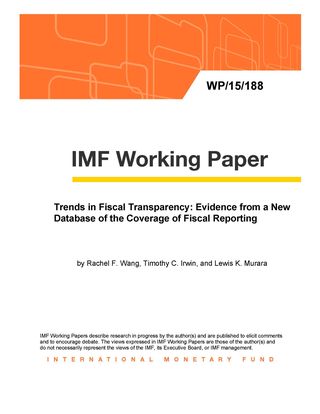Posted by Rachel Wang, Tim Irwin, and Lewis Murara[1]
What do El Salvador, Hong Kong, Russia, and the Slovak Republic have in common? They are the only economies that submit fully comprehensive government finance statistics to the IMF. That is one of the results of a recently published Working Paper, Trends in Fiscal Transparency: Evidence from a New Database of the Coverage of Fiscal Reporting.
Comprehensiveness is, of course, only one of the desirable features of fiscal data. Reliability and timeliness, for example, also matter. Unfortunately, these features are not amenable to measurement using our sources. In addition, the measures are derived solely from information submitted to the IMF and therefore ignore other publicly available information. Finally, they consider only aggregate data and not, for example, whether there are detailed breakdowns of government spending and revenue into component categories.
For more information—including data on how transparency has changed over the past decade—please see the paper.
Index of the Comprehensiveness of Government Finance Statistics
[1] Present or former staff of the IMF’s Fiscal Affairs Department.
Note: The posts on the IMF PFM Blog should not be reported as representing the views of the IMF. The views expressed are those of the authors and do not necessarily represent those of the IMF or IMF policy







